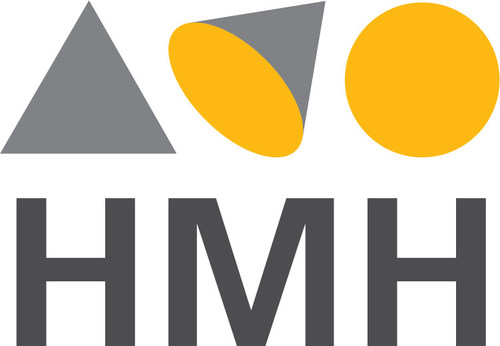According to the 2022 Educator Confidence Report, released today from learning technology company HMH, confidence in the education profession has dropped for the second year in a row. An annual barometer for how educators across the country are feeling about the state of teaching and learning, today’s report found more than 3 in 4 (76%) educators feel negatively about the state of the teaching profession in the U.S. The Educator Confidence Index, a measure of overall confidence (out of 100), continues to drop and now sits at 40.0—its lowest in the report’s history—down from 42.7 in 2021 and 49.0 in 2020.
According to HMH’s research, which surveyed more than 1,000 K-12 classroom teachers and 125+ administrators, educator retention hinges on immediate needs more than long-term developments, including improved salary and benefits, support for educator well-being and adequate funding for the classroom. Conducted between May and June in partnership with MarketCast, the report revealed three major themes for achieving success in the future: Connection, Community and Customization.
Connection: A Digital-First Era
When it comes to technology, educators see strong connections between the teacher, student, classroom and home as the top priority. Seventy-three percent of educators report feeling technology is significantly more integrated into the classroom now than pre-pandemic, with tools to communicate between teachers and parents (63%) and tools that deliver interactive learning opportunities to students (57%) most favored among teachers. Even more, 68% of educators said edtech has become essential to the classroom.
Importantly, survey results showed that educators realize the potential in classroom technology and can visualize how it fits into their workflow. 81% report the experiences of the last two years have moved education closer to fully realizing the potential of technology in teaching. Educators are most excited about easy-to-use technology that can be used in-classroom and remotely (63%).
“We believe that the future of learning will be powered to a meaningful degree by technology yet centered on human connection, and this year’s survey data gives us clear insight into how to realize that vision,” said Jack Lynch, CEO of Houghton Mifflin Harcourt. “Educators are telling us that today’s status quo isn’t cutting it, but they also see a path to the future. Importantly, that path relies on addressing basic needs like wellbeing and mental health concerns, both for teachers and students, supported by connected technology that allows educators and focus on what matters most, human relationships.”
Community: A Need for Broad Support
Educators report needing more consideration for their overall wellbeing now, with 78% of educators stating that their top concern is the mental health of their peers. The majority also need more aid in the classroom, with 64% saying they need adequate funding for classroom supplies and resources. According to today’s educators, improved salary and benefits (90%) and more support for educator well-being (67%) would make the profession more appealing to new educators.
“On top of concerns around student wellness and performance, educators are increasingly worried about their peers,” said Francie Alexander, Chief Research Officer at Houghton Mifflin Harcourt. “To nurture their needs, we must invest in tools to help our educators make the connections with their networks in ways that best serve them. Parents, administrators, policymakers and community members are all needed to support teachers and foster a new generation of educators.”
Customization: Personalization for Students and Educators
Data shows that educators believe the future of the classroom is personalized—for both students and teachers, with data-driven, personalized edtech solutions making it possible to meet everyone where they are. 79% of educators say customized learning based on what students know and what they need would most transform learning and teaching in the future.
With pandemic-induced interrupted learning continuing to stay top of mind in the classroom, educators said the top tools to aid sustained learning recovery were targeted instructional materials or resources (62%), followed by supplemental resources (55%). When looking ahead, 65% of educators say technology solutions that connect instruction—including supplemental and remediation work—and assessment on one platform are will transform the next era of education.
Additional key findings from the eighth annual Educator Confidence Report include:
- Community support for teacher compensation is key for not only retention, but for the future of the profession. Concerns about teacher salaries are up 16% since 2020, and when looking forward to the next school year, a higher salary would be most motivating for educators, especially teachers (84%).
- Teachers are looking for more appreciation, respect and “trust in their experience.” When considering long-term developments to support the profession, educators want increased community support and engagement (52%) – as respect for the role of the teacher is down 26% since 2020 and a strengthening of the connection between families and schools has dipped 18% since 2020.
- Educator and student wellbeing emerges as a top theme coming out of the pandemic. 61% of educators agree the most positive thing to come out of pandemic-era schooling is the increased attention paid to student social and emotional needs. For this reason, there is a strong agreement around the need for well-planned SEL programs (87%).
About the Educator Confidence Report
The Educator Confidence Report is an annual independent study, distributed to a diverse national cross section. The eighth annual Educator Confidence Report, underwritten by Houghton Mifflin Harcourt and conducted between May-June 2022 with MarketCast, surveyed more than 1,200 educators, including 1,058 teachers and 143 administrators.
Learn more about the 2022 Educator Confidence Report at hmhco.com/ecr.
About HMH
Houghton Mifflin Harcourt is a learning technology company committed to delivering connected solutions that engage learners, empower educators and improve student outcomes. As a leading provider of K–12 core curriculum, supplemental and intervention solutions, and professional learning services, HMH partners with educators and school districts to uncover solutions that unlock students’ potential and extend teachers’ capabilities. HMH serves more than 50 million students and 4 million educators in 150 countries. For more information, visit www.hmhco.com

